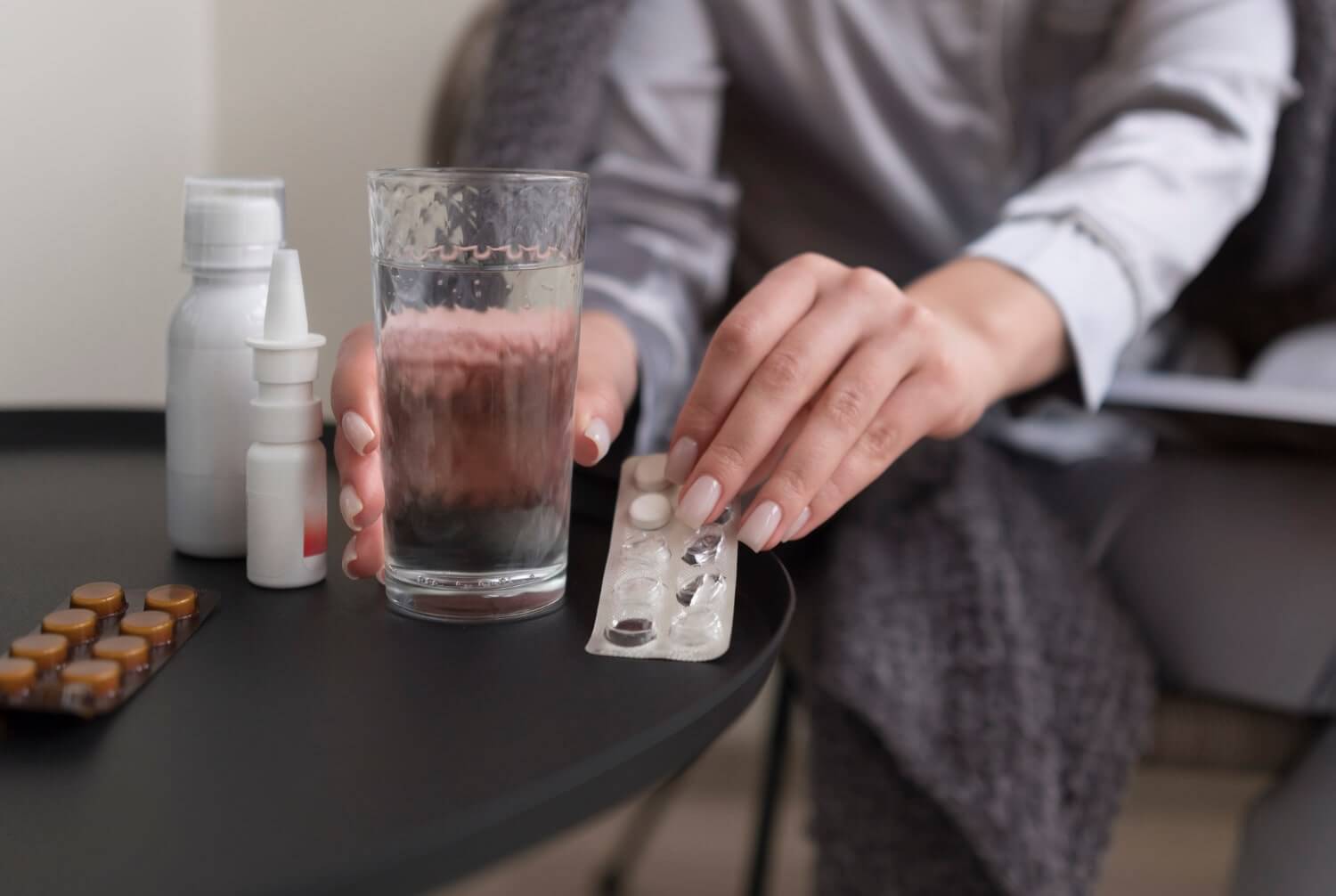Trazodone, a medication often associated with treating depression, can sometimes raise eyebrows. After all, it’s a prescription drug, and prescription drugs can be addictive, right? This begs the question: Is trazodone controlled substance? The answer might surprise you.
This blog dives deep into the world of trazodone, exploring its uses, its role in addiction treatment, and its potential side effects. We’ll clear the air on trazodone is a controlled substance and shed light on how trazodone can be a valuable tool for those on the road to recovery.
What Exactly is Trazodone?
Trazodone belongs to a class of medications known as antidepressants. Unlike some antidepressants that target specific neurotransmitters like serotonin or norepinephrine, trazodone works in a slightly different way. It has a somewhat complex mechanism of action, but in simpler terms, it influences the activity of several different neurotransmitters in the brain, including serotonin. This altered neurotransmitter activity is believed to be what contributes to trazodone’s effectiveness in treating depression.
Controlled Substance or Not? Understanding the Distinction
The term “controlled substance” refers to a category of drugs with a high potential for abuse and dependence. These drugs are strictly regulated by the government and categorized into five schedules based on their potential for abuse and accepted medical use. Schedule I drugs have the highest potential for abuse and no currently accepted medical use (think heroin), while Schedule V drugs have the lowest potential for abuse and a recognized medical use (like cough syrups with small amounts of codeine).
Here’s the good news: trazodone is not a controlled substance. This is because studies haven’t shown a high risk of people becoming dependent on trazodone when used as prescribed. While dependence can develop with any medication taken for a long time, is trazodone a narcotic, generally doesn’t cause the intense cravings or withdrawal symptoms associated with addictive drugs.
While trazodone is primarily used for depression, it has found an interesting off-label use in addiction treatment. “Off-label” means that a medication is being used for a purpose that isn’t officially listed on its FDA approval label. In this case, trazodone is sometimes prescribed to help people struggling with addiction get a good night’s sleep.
This is particularly helpful because withdrawal from addictive substances often disrupts sleep patterns. People may experience difficulty falling asleep, staying asleep, or both. This lack of sleep can worsen withdrawal symptoms and make recovery even more challenging. Trazodone’s ability to influence sleep-related neurotransmitters can be a welcome relief, promoting better sleep and aiding the recovery process.
Side Effects of Trazodone
It’s important to remember that trazodone, like any medication, can have side effects. The most common ones include drowsiness, dizziness, and dry mouth. These side effects are usually mild and temporary, but it’s always crucial to discuss them with your doctor before starting any new medication.
Additionally, trazodone can interact with other medications, so it’s important to be upfront with your doctor about all the medications and supplements you’re currently taking.
Here’s another point to ponder: trazodone isn’t the only solution for sleep problems during addiction recovery. Non-medication approaches like cognitive behavioral therapy for insomnia (CBT-I) can be very effective. CBT-I focuses on developing healthy sleep habits and addressing negative thoughts and behaviors that contribute to sleep disturbances. There are also other medications sometimes used for sleep in addiction treatment, like antihistamines, which have different side effects and benefits compared to trazodone.
How Is Trazodone Used in Addiction Treatment?
Trazodone can be a valuable tool for managing sleep disturbances during addiction recovery. However, it’s not a cure-all. It’s important to work with a healthcare professional to develop a comprehensive treatment plan that addresses the underlying addiction and promotes overall well-being. This plan may include trazodone, other medications, non-medication approaches, and therapy.
Finding the Right Path to Recovery
If you or someone you love is struggling with addiction, know that help is available. Addiction treatment centers offer a variety of programs and services to support individuals on their journey to recovery. These programs can provide medical detox, individual and group therapy, relapse prevention strategies, and life skills training.
Located in Middletown, Ohio, River Rocks Recovery is a leading addiction treatment center dedicated to providing compassionate and evidence-based care. We understand that the road to recovery is unique for everyone. Our team of experienced professionals works closely with each client to develop a personalized treatment plan that addresses their specific needs and goals.
If you’re ready to take control of your life and overcome addiction, River Rocks Recovery is here for you. We offer a confidential assessment to help you determine the best course of treatment. Call us at 888-905-6281 or fill out the form today to learn more about our programs and how we can help you achieve lasting recovery.
FAQ – Is Trazodone Controlled?
Why is trazodone used in addiction treatment?
Trazodone is sometimes used off-label to help people in addiction recovery sleep better. Withdrawal from addictive substances can disrupt sleep patterns, and trazodone’s influence on sleep-related neurotransmitters can promote better sleep, aiding the recovery process.
Are there side effects to trazodone?
Yes, trazodone can cause side effects like drowsiness, dizziness, and dry mouth. These are usually mild and temporary, but it’s important to discuss them with your doctor before starting trazodone.
I’m struggling with addiction. Can River Rocks Recovery help?
Yes, River Rocks Recovery is an addiction treatment center in Ohio offering a variety of programs and services to support individuals on their recovery journey. We provide medical detox, mental health therapy, relapse prevention strategies, and life skills training. Contact us today for a confidential assessment and to learn more about how we can help you achieve lasting recovery.




























